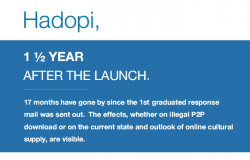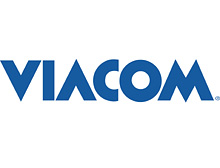Weekly News Roundup (8 April 2012)
So my pretty half-hearted attempt at an April Fools Day joke did actually fool a few people, although as you’ll read later on in this WNR, that little made up news article might really have been a preview into the future.
It’s been two weeks since my last mention of Skyrim, but rest assured, I’m still playing. 125 hours through, I think I’m about half way through the available quests (but having only completed just 2 of the questlines so far). Well worth the $50 or so I spent on the game (compare that to, say, your typical 2 hour movie on Blu-ray for $20, it’s excellent value).
Now onto the news …

Staring with copyright news, I’ve made the point before that, despite conventional logic, decreasing piracy should not be the end goal of anti-piracy – instead, the goal should be to increase revenue.
And I’ve also made the argument that I don’t think all piracy leads to revenue loss – in fact, I think most acts of piracy don’t actually lead to any loss in sales, as these acts are performed by people who really don’t buy a lot of stuff, or don’t have the resources to buy any more.

France's "Hadopi" three-strikes law seems to have dramatically reduced piracy, without actually increasing revenue
With anti-piracy efforts around the world ramping up, and the closure of several well known (alleged) piracy haunts, it would be extremely interesting to see the full financial impact of this expected piracy reduction, some say by as much as 40% in specific sectors (music, for one, after the closure of LimeWire). And so when Hadpoi, the French agency tasked with managing their “three-strikes” regime, released a report detailing the success of the program, with headline making statements such as “69% reduction” in piracy rates, this might have been just what was needed to see the real relationship between piracy and revenue. But while the report made ever bigger claims about the effect the regime had on piracy, what was sorely missing though were hard evidence of a rise in revenue, which as I’ve noted above, should have been the real goal of the whole exercise.
And while Hadopi might have been coy on the financial side of things, it just happens that most industry financial figures are public and available online. Looking at the French music and movie industry, and their performances in 2011 compared to 2010 (a full year with “three-strikes” in effect), the figures, if interpreted in a silly way, may actually point to the opposite: that piracy may have been helping sales!
The French recorded music industry recorded a contraction of 3.9% in 2011, while the movie industry didn’t fare much better, with revenue down 2.7%. In fact, the music industry’s loss was actually greater than the global average of 3%, possibly significant given that most of these other countries still have laws that are perceived to be much weaker than France’s. Of course, to come to the conclusion that piracy was helping to fuel sales would be silly, and a mis-use of stats, and I guess it would also be slightly disingenuous to say that the piracy reduction didn’t have a positive effect on revenue. But what is clear is that there isn’t a 1:1 relationship between piracy and revenue loss, certainly not to the extent that the content industries have been trying to tell us.
What may be true is that the ever changing digital scene may have had a greater impact on the fortunes of both industries than the forced habit change of pirates in France. The music industry’s figures did show a dramatic increase in digital download revenue, higher than the global average, and that may be interpreted as a positive effect from “three-strikes”. But on the other hand, the introduction and adoption of new digital services such as Spotify, may actually be the main driving factor behind increasing sales. Similarly, while physical disc sales for the movie industry were down, VOD and other digital services recorded huge growth. So what may be actually happening is that new services are finally giving people, who used to pirate, the convenience (and the price point) they were craving. Unfortunately, most of these services probably earn less for their respective industries than compared to physical sales – sales that these industries had more control over. So innovation appears to be winning the war against piracy (who’d have thunk it?), but by being overly cautious and being overly obsessed with anti-piracy and DRM, the industries that had most to gain from this digital revolution can now only watch from the sidelines as companies like Apple, Amazon and Netflix take over a large part of the distribution process (and as a result, a large portion of the profits too). You snooze, you lose.

Viacom is still trying to fight YouTube, despite today's YouTube being totally different to the one it sued
It’s still not too late for them though, as they still control the content. As long as they realise the errors of their ways, and start embracing change, instead of fighting innovation, the content industries can still come out ahead as they have done with every technological transition that they have initially opposed. But that’s probably a little too optimistic, as these industries believe they’re in a fight for their lives, and they won’t quit until it’s probably too late. Take Viacom, who this week won an appeal to have their lawsuit against YouTube re-heard in court. The problem is that the YouTube that Viacom wanted to sue no longer exists, things have moved on piracy wise on the site, partially via threats such as their original lawsuit, but mostly due to changing user habits – and it is now a platform that companies like Viacom should want to be part of. Viacom, for their part, has been making the efforts, signing deals with Google to distribute their content via YouTube and Google Play and such, but you don’t really know if it’s them truly embracing the trend, or doing so reluctantly because everyone else is doing it (but still secretly want things back to the way it was). And if they do want to embrace services like YouTube, then why not just drop a lawsuit that they probably can’t win anyway?

MPAA chief Chris Dodd still holds out hope for SOPA/PIPA, and may have to "Bully" some tech companies into line to support future legislation
If the industry could only chill out and become a little bit less paranoid about piracy, perhaps we wouldn’t have the types of limitations, via geo-restriction, timed release windows and DRM, that technology providers have to contend with. And without these limitations, we may finally have a product or service that’s better than piracy, maybe not with a straight price comparison, but would be convenient and non-intrusive enough for people to not bother with torrents. Having access to all episodes of Stargate SG-1 via a $7.99 per month Netflix account, as opposed to downloading all the DVD-rips, for example (and an example that seems to be actually working in practice right now, judging by the relatively small number of leechers for the complete rip of the series on The Pirate Bay). But perhaps this too is far too optimistic, with MPAA’s chairman Chris Dodd this week still holding on to the hope that SOPA and PIPA will eventually pass through Congress (my April Fools Day joke news article aside), suggesting we haven’t seen the end of Hollywood and the record industry’s support for short-sighted and draconian non-solutions to the web piracy problem. Unfortunately, Dodd’s statement itself may not be considered that optimistic, as there are signs in the last few weeks (from the White House and beyond) that support is building again for SOPA like legislation. Meanwhile, the MPAA will certainly try to “Bully” more politicians into supporting it, while making sure this time these supporters won’t backflip just because a million or ten come out in opposition to any proposed legislation. We all need to get ready for another fight.
Speaking of paranoid, the MPAA’s latest fear is that Megaupload would somehow get access to the data stored on their (former) servers and would somehow re-launch Megaupload, perhaps in another jurisdiction. Considering the fact that the Megaupload guys actually want to avoid prison, I suspect there’s little, if any chance Megaupload could be relaunched. But this latest MPAA manoeuvre will make it harder for users to get back their legitimate files, not that the MPAA cares or anything.
![]()
In gaming news this week, I wrote a brief round-up of the latest “PS4” and “Xbox 720” rumours, starting with more creative names for both next-gen consoles.
Sony’s next console will have the codename Orbis, while Microsoft has chosen Durango. Orbis and Durango (sounds like two characters from a kid friendly adventure game), seems to have more similarities than differences, with both reported to be using AMD technology to drive both the CPU and GPU.
Not only that, both consoles seem keen to deploy some kind of anti second-hand game system, where each disc is locked to an account, and money needs to be paid (to Sony and Microsoft, who up until now have not been part of the second hand trade) to unlock a disc for another account. The latest rumours even sees Microsoft’s Durango borrow from Ubisoft’s playbook, with a requirement for a constant-on Internet connection (hope it isn’t true, because that would suck).
With neither console scheduled to make an appearance until late 2013, it’s perhaps a bit too early to take any rumours that seriously at this stage. Not that you should take anything I write seriously, April Fools or otherwise.
And on that serious/not serious note, that’s all I have for you this week. It’s not much, but it will have to do until next week. Happy Easter, Passover, and any other religious or non religious holidays that I may or may not be aware of.
